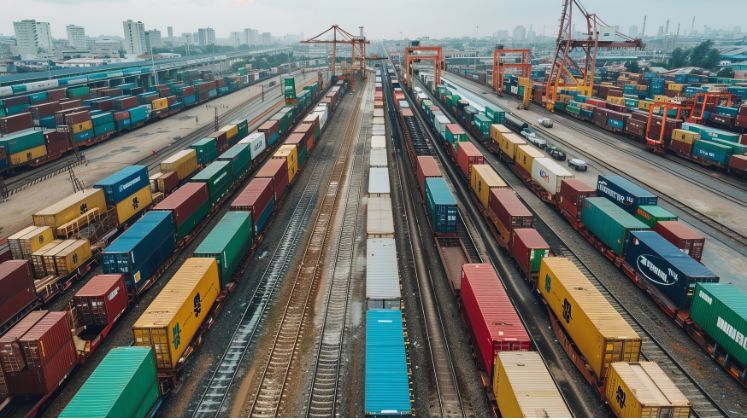
Despite the ongoing tensions between India and Pakistan after 26 people, mostly tourists, were killed in India’s Kashmir on 22nd April, business leaders in Bangladesh do not anticipate that commerce with its neighbours will be disrupted right away.
Many industry officials suggest that the current border tensions are unlikely to significantly impact Bangladesh’s trade operations in the short term. Some even believe that if the conflict escalates further, Bangladesh could potentially see economic benefits through increased trade and investment opportunities.
However, concerns remain about the possibility of prolonged or intensified hostilities. Notably, some businesses have expressed apprehensions regarding supply chain disruptions, especially for raw materials vital to Bangladesh’s US $ 16 billion textile export sector. India serves as Bangladesh’s second-largest trading partner, with imports valued at approximately US $ 14 billion in the 2022-23 fiscal year, and exports to India totaling around US $ 2 billion. A significant portion of raw materials such as cotton and yarn are sourced from India, with trade passing through land borders.
Showkat Aziz Russell, president of the Bangladesh Textile Mills Association (BTMA), stated, “So far, we do not see any risk or concern for Bangladesh in the current situation. The issue is confined to the border area between India and Pakistan.” He added that Bangladesh has previously managed supply disruptions by seeking alternative sources such as China and Vietnam, and is prepared to do so again if necessary.
Similarly, Mahmud Hasan Khan Babu, managing director of Rising Group, emphasised that the current situation does not pose a major threat, noting that the conflict remains limited to the border region.
Nevertheless, some industry insiders warn of potential disruptions if the conflict escalates into a full-scale war. Mohammad Hatem, president of the Bangladesh Knitwear Manufacturers and Exporters Association (BKMEA), highlighted that border trade could be affected, even if sourcing raw materials remains unaffected for now.
Belayet Hossain, former director of the Bangladesh Garment Manufacturers and Exporters Association (BGMEA), pointed out that imports such as cotton, yarn, and thread from India and Pakistan are crucial for the garment industry.
Beyond trade, logistics and transportation challenges are already emerging. Mohammed Amirul Haque, chairman of Seacom Group, warned that the conflict is disrupting air and sea logistics, including diverted flights and increased freight costs.
Khairul Alam Sujon, vice president of the Bangladesh Freight Forwarders Association (BAFFA), expressed caution about the uncertain duration and outcome of the conflict.
While the Bangladesh government and industry leaders remain watchful, they emphasize that, for now, the impact on trade is limited. Nevertheless, experts warn that any escalation could have serious implications for Bangladesh’s economy, particularly its export-dependent garment sector.






